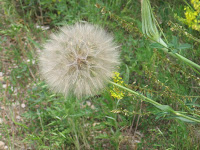It happened again. Yesterday, the long-awaited email arrived from the agent reading my revised (as per her suggestions) novel. In short, she said one word: No.
Finding an agent is akin to being a teenager desperately seeking a sweetheart: “Yes, I’ll be whatever you want me to be, just say, yes!” After dating this agent for over a year (all those encouraging emails and lingering conversations), I was once again dumped, mimicking my previous dating-game-gone-bad love story with the agent before her. If there were such a thing as Literary-agent-eharmony, I would post an ad that read, “Sincere and hard-working writer, willing to listen to you deeply and edit until the cows come home yearns with all her being for long-term relationship with literary agent who tells it straight, loves my characters, and knows her way around a publishing house.”
Instead, I find myself once again matchless (not that I should complain – I feel like I was surprisingly lucky in love beyond the manuscript), and feeling like I’m failing. It’s not so much “failed,” as in the past tense, but more an ongoing process punctuated by doubt, fear, longing, anger at the publishing industry, jealousy when I stroll the fiction sections of bookstores, and an underlying sadness. The sadness is what catches me most and, in slow-motion, lowers me to the ground. There’s something about failing that feels like falling, and then lying quietly on the ground for a long time.
It reminds me of when I failed my Ph.D. comps – 12 hours of written exams over a three-day period on my four chosen specialty areas: American literary of the 20th genre, Emily Dickinson, poetry as a genre, and child birth imagery in contemporary women writers. After reading over 300 books, memorizing dozens of poems, and readying myself to speak at length on 50 poets from Chaucer to Leslie Marmo Silko, I thought I would leap and twirl through the exams like the Baryshnikov of the English department. Instead, I picked up the phone a week after the exam, holding my toddler son, and heard one of my most beloved professors on the other end, gently explaining how the committee unanimously failed me on each section of the exam. I put my son down, and although I was standing, I felt like I was sinking into the floor, laying face-down, seemingly unable to stand again for many months.

After reading the likes of Rachel Blau DuPlessis and other feminist writers who presented theory with the poetry intact, I saw that passing the exams was a challenge of translation for me. I enrolled in an American studies course on literary theory, revisited the likes of post-structuralism, Marxism, reader-response theory, and assertions from the professor that everything – from the earth to love or spirituality – was simply a social construct. I disagreed mightily, but found the strength to stay put and listen to the language people used to discuss theory, in great part through a connection with a fellow student who felt, like me, that the living earth wasn’t a social construct. At the end of the semester, I re-took my Ph.D. comps, passing them this time, and polished off the dissertation I had almost finished before I took the comps the first time.
Had it not been for finishing my Ph.D., I would never have gotten into the door at
But beyond the actual lessons learned, there’s also that sense of lying quietly on the ground, the same thing I feel each time a manuscript is rejected despite my jumbo-sized effort a
Photos of the ground: Top is floor in the HueHuecoyolt (Spanish for old, old coyote) ecovillage community center, middle is prairie in winter, bottom is prairie in late spring.



